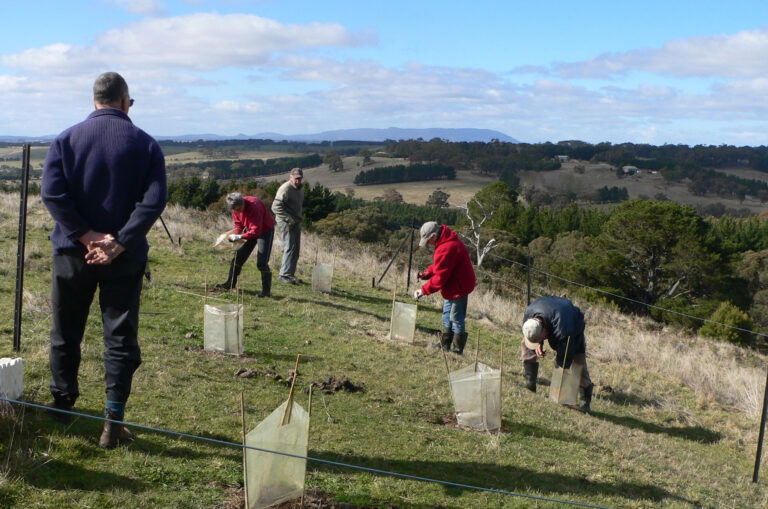Malmsbury District Landcare Group
Formed in 1996
120 Members as of 2025
🌿 Welcome to Malmsbury District Landcare Group
We proudly acknowledge the Djaara people of the Dja Dja Wurrung Nation as the Traditional Custodians of the djandak (land) on which we live, learn, and work. For thousands of years, they have cared for this Country — shaping it and being shaped by it in return. We pay our deepest respects to their Elders past, present and emerging.
We especially honour the Galk Galk Gundidj clan — “those belonging to the forest” — who once roamed this part of Country. The land we live and work on was never ceded — it was stolen — and we recognise the enduring connection of the Djaara to this place.
🌱 Who We Are & What We Do
Malmsbury District Landcare Group is a passionate and hands-on community group working to protect and restore our local environment — from the bush blocks and backyards of Malmsbury and Lauriston, to the forested hills near Denver and the mighty Wombat State Forest.
Our members span across the Macedon Ranges, Hepburn and Mount Alexander Shires, with most living locally on small rural or lifestyle properties. Whether you’re a seasoned land steward or new to the land, there’s a place for you in our community.
🔨 Our Impact (So Far!)
-
🌳 30,000+ indigenous trees and shrubs planted on members’ properties since 2009
-
🌿 10,000+ more planted across local reserves and public land
-
🦘 Regular field days, flora & fauna surveys, and collaborative excursions
-
💬 Quarterly newsletters, engaging talks, and public events
-
🌊 Ongoing restoration of the Coliban River, Kangaroo Creek, and soon, Back Creek!
We’ve become known for turning neglected public land into thriving community assets. With a strong focus on waterways and wildlife, our projects have uncovered threatened species like:
-
🦉 Greater Gliders
-
🐿️ Brush-tailed Phascogales
-
🐸 Bibron’s Toadlet
-
🐦 Six threatened bird species
-
🌸 18 species of threatened native flora
If you’re keen on wildlife conservation, you can get involved in citizen science surveys and help monitor the remarkable biodiversity in our region.
🤝 Join Us!
We believe in Landcare for everyone. Whether you want to plant a tree, join a fauna survey, come to a community BBQ, or just stay connected through our newsletter — if you are interested in getting involved you can access our Membership Form here.
Together, we care for the land that sustains us all. Come and be part of something meaningful, local, and deeply rooted in community and Country.

